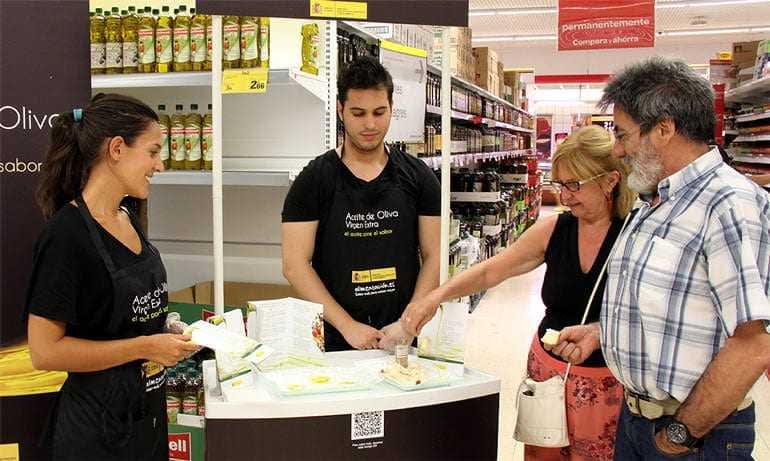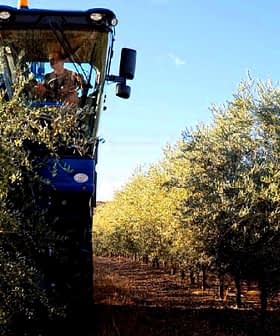
Consumption of sunflower oil rose 9.7 percent last year while that of olive oil fell nearly 1 percent, but olive oil remains by far the most used edible oil in Spanish households, according to the latest Spanish food consumption data.
The Spanish Ministry of Agriculture, Food and Environment (MAGRAMA) figures also show that while consumption of refined olive oil in Spanish homes decreased 6.8 percent on 2012, the virgin olive oil category managed to grow 12.1 percent.
Each person consumes 9.31 liters of olive oil annually at home
Overall, each person in Spain consumed an average of 13.56 liters of edible oil in 2013 (up from 12.8 in 2012), of which 5.22 liters was refined olive oil (marketed as “olive oil”) and 4.09 liters was virgin olive oil. That makes a per capita total of 9.31 liters for olive oil overall and adds up to nearly 423 million liters, down 0.8 percent on 2012, while the next most consumed oil, sunflower oil, averaged 3.72 liters per person and totaled about 169 million liters.
Refined olive oil accounted for 38.5 percent of the total volume of oil consumed in Spanish homes last year and 44.2 percent of value, while the respective figures were 30.2 and 38.9 percent for virgin olive oil and 27.4 and 14.4 percent for sunflower oil.
The vast majority – 92.1 percent – of edible oil for household consumption was bought in hypermarkets, supermarkets and discount stores.
Profile of consumers
In a press release, MAGRAMA said its study of edible oil consumption also showed that the households with the highest consumption of refined olive oil were those in Galicia, the Canary Islands, and Asturias, and comprised of couples with children aged above 17 or without children, and retirees.
Consumption of virgin olive oil was highest in cities of more than 100,000 inhabitants in the regions of Andalusia, Madrid, Cantabria and the Basque Country and also among households formed by couples with older children or without children, and retirees.
Sunflower oil was most popular in towns with less than 10,000 inhabitants in Galicia, Castile and León, and Cantabria, and among households comprised of couples with children aged from about seven and above.








